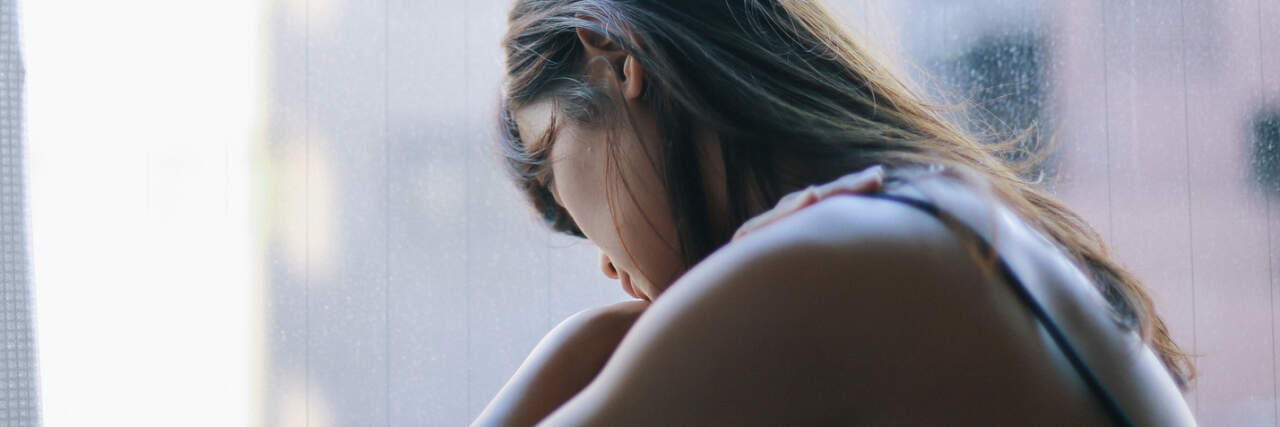13 People Share How Borderline Personality Disorder Most Affects Them
By their very nature, personality disorders affect the way we interact with the world — how we perceive others, how we perceive ourselves, and how we act and feel about those perceptions. For borderline personality disorder (BPD) — which is widely misunderstood and subject to horrendous stigma — its emotional vulnerability and instability can particularly permeate every aspect of the lives of those living with the disorder, but especially when it comes to relationships and interacting with others.
With this in mind, we wanted to ask our BPD community which areas of their lives it affects the most, both positive and negative.
While the negatives outweighed the positives of living with BPD, here’s what they told us:
“The most negative impact seems to change often for me. At the moment, it is a very general feeling of being disliked and feeling like a ‘freak.’ This makes anything that involves being around people a huge challenge. Not sure about the most positive impact.” — @fu2bpd
“For me, I guess it’s the guilt. To me, everything is my fault, even if I don’t feel that way at first. I overthink and overthink and in the end I blame myself for things that are out of my hands. Second, it’s fear of abandonment. No matter how nice the other person is or how close we are, I know deep in my heart that this person will ‘see me for who I am’ and hate me.” — @hanna_99
“Relationships, for sure. I have a hard time making friends, keeping friends, keeping in touch with family, and giving anyone in my life enough love and attention. The guilt and regret of the things I’ve done wrong, even if the thing I regret is not coming around often enough, makes it all the more difficult to ever reach back out.” — @hollyhockmmgrzhfm
“My work! I’m always getting talked to. I can’t control my impulsiveness and anger, no matter who it is. Therapy has helped me control other symptoms of BPD, but not these two.” — @lioness1717
“Relationships and employment but I own my own business cause I don’t work well with others.” — @kmahony
BPD has affected every aspect of my life. Poor body image, relationships, confidence, direction, knowing what I want or don’t want, and missed opportunities. —@hopeful1976
“The constant mood changes does my absolute head in — it’s exhausting.” — @kindkate89
“Employment, self-identity and relationships negatively. Self-awareness and empathy, positively.” — @scott_f
“My BPD plays out in romantic relationships and its exhausting to almost always pick out (emotionally) abusive partners. My therapist is ‘educating’ me about the traits and what is behind it. I hope, in the long run, that this will have an impact and I find a healthier relationship. In friendships, it can play out too sometimes but not as severe as with romantic partners. My long-term friends are patient and we always find a way to talk about things. Usually, my BPD affects friendships when I am going through a breakup.” — @meggy22
“Definitely relationships… I feel too deep and get used, abused, hurt, and end up rejected and abandoned. I probably also trust too easily as I want to see the good in people. I also have a very kind, loving, and giving nature so that is a magnet for people to take advantage of all of that.” — @fieryredminx
“BPD impacts my work life most. I’ve been fired from two jobs for sharing too personal stories. And also, expecting others to always follow policies as close as I do. I switched jobs and learned to watch my actions and reactions.” — @dodiecoker
“Struggling to maintain my current (and first) relationship especially due to my tendency to fight back if someone criticizes me for any reason, especially my driving or how I perform tasks. He says he cares deeply for me and will never leave no matter the challenges we face, but can’t understand why I can’t comprehend simple things, get over conflicts, or why I sometimes say I feel empty or numb instead of getting angry or crying. I’ve told him so many times that until he’s lived with the BPD in my head or experienced the same abuse, then he has no idea what I’m going through, especially since he’s the one who helped me recognize the childhood emotional abuse from my narcissistic father. He now makes an effort to say ‘can I make a suggestion’ rather than outright criticizing and that has helped. I’m just so grateful that he wants to stick by my side through all of this.” — @rockinginparadise
”Fighting internally every day, especially when I have to go to work or do simple daily tasks” — @daisymaeannev
Getty Images photo via Eri Miura

